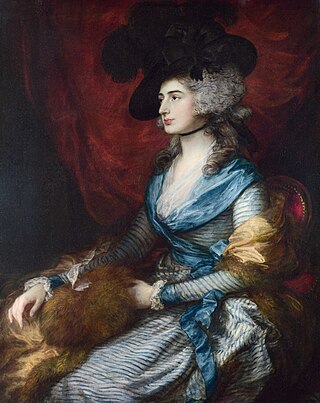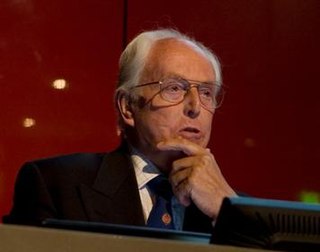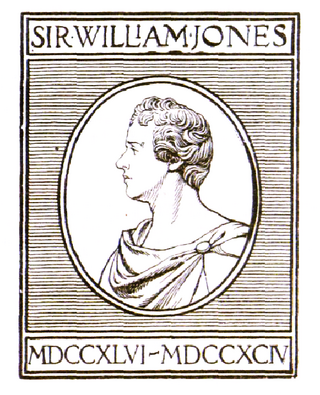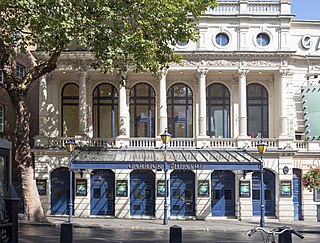
David Garrick was an English actor, playwright, theatre manager and producer who influenced nearly all aspects of European theatrical practice throughout the 18th century, and was a pupil and friend of Samuel Johnson. He appeared in a number of amateur theatricals, and with his appearance in the title role of Shakespeare's Richard III, audiences and managers began to take notice.

Sarah Siddons was a Welsh actress, the best-known tragedienne of the 18th century. Contemporaneous critic William Hazlitt dubbed Siddons as "tragedy personified".

Margaret Woffington, known professionally as Peg Woffington, was an Irish actress and socialite of the Georgian era. Peg and Peggy were a common pet name for those called Margaret until the late 20th century.

Brian Norman Roger Rix, Baron Rix, was an English actor-manager, who produced a record-breaking sequence of long-running farces on the London stage, including Dry Rot, Simple Spymen and One for the Pot. His one-night TV shows made him the joint-highest paid star on the BBC. He often worked with his wife Elspet Gray and sister Sheila Mercier, who became the matriarch in Emmerdale Farm.

The Asiatic Society is a government of India organisation founded during the Company rule in India to enhance and further the cause of "Oriental research", in this case, research into India and the surrounding regions. It was founded by the philologist William Jones on 15 January 1784 in a meeting presided over by Justice Robert Chambers in Calcutta, the then-capital of the Presidency of Fort William.

Jennifer Kendal was an English actress and the founder of the Prithvi Theatre. She was nominated for the BAFTA Award for Best Actress in a Leading Role for the film 36 Chowringhee Lane (1981). Her other film appearances included Bombay Talkie (1970), Junoon (1978), Heat and Dust (1983), and Ghare Baire (1984).

The Theatre Royal, Drury Lane, commonly known as Drury Lane, is a West End theatre and Grade I listed building in Covent Garden, London, England. The building faces Catherine Street and backs onto Drury Lane. The building is the most recent in a line of four theatres which were built at the same location, the earliest of which dated back to 1663, making it the oldest theatre site in London still in use. According to the author Peter Thomson, for its first two centuries, Drury Lane could "reasonably have claimed to be London's leading theatre". For most of that time, it was one of a handful of patent theatres, granted monopoly rights to the production of "legitimate" drama in London.

The Garrick Theatre is a West End theatre, located in Charing Cross Road, in the City of Westminster, named after the stage actor David Garrick. It opened in 1889 with The Profligate, a play by Arthur Wing Pinero, and another Pinero play, The Notorious Mrs. Ebbsmith, was an early success at the theatre. In its early years, the Garrick appears to have specialised in the performance of melodrama. The theatre later became associated with comedies, including No Sex Please, We're British, which played for four years from 1982 to 1986.

Rupert William Penry-Jones is a British actor, known for his performances as Adam Carter in Spooks, Clive Reader in Silk, DI Joseph Chandler in Whitechapel, and Mr Quinlan in the American horror series The Strain.

Ann Cargill was a British opera diva and celebrated beauty whose life and death were a sensation in London at the close of the 18th century.

Catherine Clive Catherine ‘Kitty’ Clive was a first songster and star comedienne of British playhouse entertainment. Clive led and created new forms of English musical theatre. She was celebrated both in high-style parts – singing, for instance, Handel’s music for her in Messiah, Samson, and The Way of the World – and in low-style ballad opera roles. Her likeness was printed and traded in unprecedented volume. She championed women’s rights throughout her career.

Thousands of performances of William Shakespeare's plays have been staged since the end of the 16th century. While Shakespeare was alive, many of his greatest plays were performed by the Lord Chamberlain's Men and King's Men acting companies at the Globe and Blackfriars Theatres. Among the actors of these original performances were Richard Burbage, Richard Cowley, and William Kempe.

The Duke's Company was a theatre company chartered by King Charles II at the start of the Restoration era, 1660. Sir William Davenant was manager of the company under the patronage of Prince James, Duke of York. During that period, theatres began to flourish again after they had been closed from the restrictions throughout the English Civil War and the Interregnum. The Duke's Company existed from 1660 to 1682, when it merged with the King's Company to form the United Company.

Thomas Wignell was an English-born actor and theatre manager in the colonial United States.
Thomas Elrington (1688–1732), was an English actor.
Esther Leach was a Colonial-Indian English stage actress and theatre director active in India. She was an important figure in the theatre history of India, founded and managed the Sans Souci Theatre (1839-49), one of the first professional English theatres in the city of Calcutta, and regarded as the leading lady of the Calcutta stage in her time. She was referred to as the Indian Sarah Siddons.
Sans Souci Theatre was a historical colonial-British theatre in Calcutta in India, active from 1839 to 1849. It was the main venue for British theatre in Calcutta, as well as India, during is duration. It was also to be the only public theatre in Calcutta and India long after its demise.
The Mrs Bistow's Theatre also known as Chowringhee Theatre, was an historic theatre in Calcutta in India, founded in 1787. It was the third theatre in the city of Calcutta. It is known as the first theatre in India to employ actresses.
The Private Subscription Theatre more commonly known as the Chowringhee Theatre, was an historic theatre in Calcutta in India, founded in 1813 and closed in 1838.

Mary Bulkley, née Wilford, known professionally as Mrs Bulkley, Miss Bulkley, and later Mrs Barresford, was an English eighteenth-century dancer and comedy stage actress. She performed at various theatres, especially Covent Garden Theatre, the Theatre Royal, Dublin, the Theatre Royal, Edinburgh, the Theatre Royal Haymarket and Shrewsbury Theatre. She performed in all or most of the Shakespearean comedies, and in several tragedies, besides many contemporary comedy plays. She played the part of Hamlet at least twice. She was considered a beauty when young, and her talent was praised. She married George Bulkley and later Captain Ebenezer Barresford, and openly took several lovers. Her early career was successful, but later she was hissed on stage due to her extra-marital affairs, and she died in poverty.














